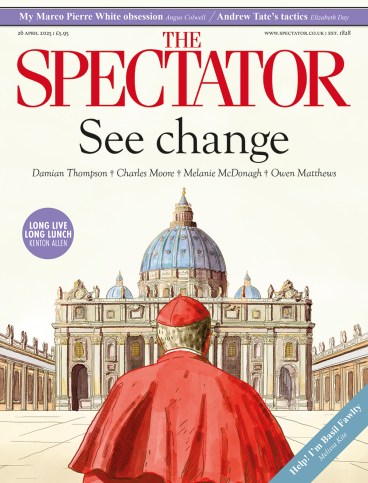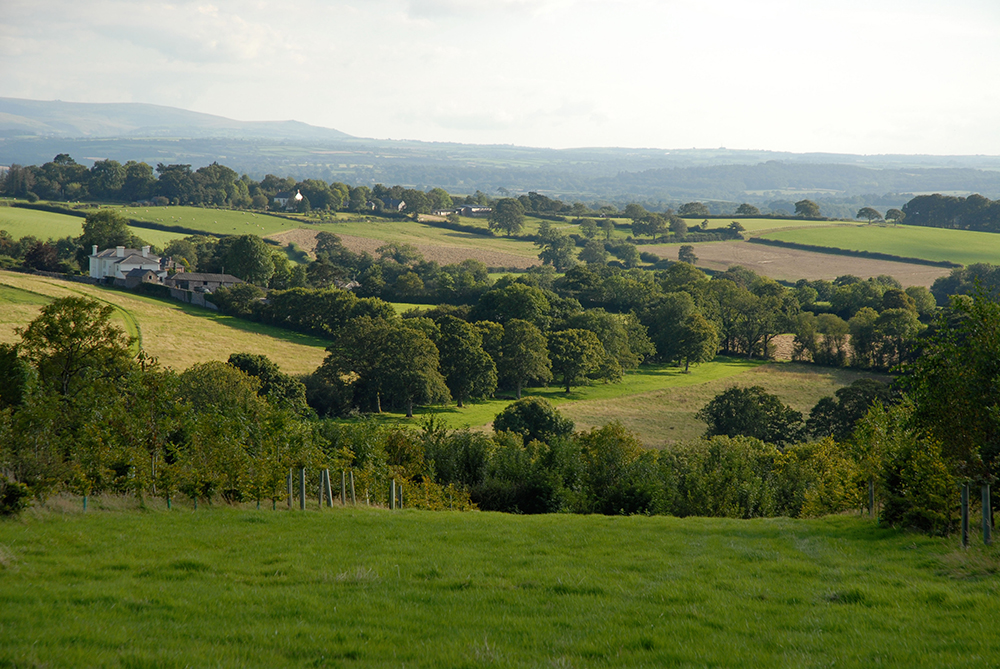
Fifty years ago, the blasted bodies of three unmarried siblings, members of the Luxton family, were discovered at a Devon dairy farm, set in a lush stretch between the ‘lavender haze’ of Exmoor and Dartmoor. The youngest member of the family, Alan, was 55. He lay in his pyjamas and work boots on the cobbles in the farmyard. Robbie, 65, with cuts to his face, and Frances, 68, clad in a nightgown rucked up to her waist, were found together in the garden. All the doors to the primitive thatched family farmhouse were locked from inside.
The ‘tragic trio’, as they were described by the tabloid press, were the last of an ancient line who had farmed at West Chapple, Winkleigh. Each of the victims had their heads blown off. The questions John Cornwell’s book, originally published in 1982, seeks to answer are: who shot whom, in what order, and why.
His investigation was launched when Peter Carson, his late editor at Penguin, sent him a newscutting about the bloodbath in September 1975 with a scribbled note: ‘FYI: is there a book in this?’ After reading the press report, Cornwell set off to talk to the siblings’ neighbours and local farm workers. The picture that emerges is unforgettably bleak. The Luxtons were a proud, penny-pinching, reclusive family who kept to the old ways. If a farmhand scrumped an apple, money would be deducted from his wages; if the weather was too extreme for outside work, that day would be regarded as part of annual leave.

Cornwell discovered that when Alan wanted to sell his share of the property and marry his sweetheart, Robbie refused to buy him out. The siblings seethed with anger, jealousy and an undertow of incest and resentment overflowed. There were family secrets about which Cornwell can only speculate. It remains a murder-suicide mystery, family tragedy and elegy to the desperate love of the land that farming families feel above all else.
Since this is a reissue, there are embellishments, including a juicy afterword about Ted Hughes. The poet was a neighbour of the Luxtons, and he turned on Cornwell and tried to prevent the book being published. One of his many strange arguments was that Devon was a ‘malevolent’ and ‘secretive’ place, and that any outsider or ‘grockle’ infiltrating the claustrophobic combes and cleeves would come to a bad end. When Cornwell told Hughes over the telephone that he wouldn’t withdraw the book, Hughes then went to Penguin’s boss, Peter Mayer. He agreed to submit Earth to Earth to a fact-check, at the author’s expense, which it passed – just as it stands the test of time today.
This is a dark, penetrating, compulsive book that seemed almost like recent family history to me. When my grandfather bought Nethercote, a farm in neighbouring Somerset, in 1951, it was inhabited by two brothers, Ernest and Stanley Blake, and their sister. The men shared the farm work, the medieval longhouse and the same bed, but only communicated, if they had to, through their housekeeping sister. They were three cohabiting, dysfunctional siblings. West Chapple could have been Nethercote, and the Blakes could have been the Luxtons – hefted to the land, fanatically frugal and penitentially austere.







Comments